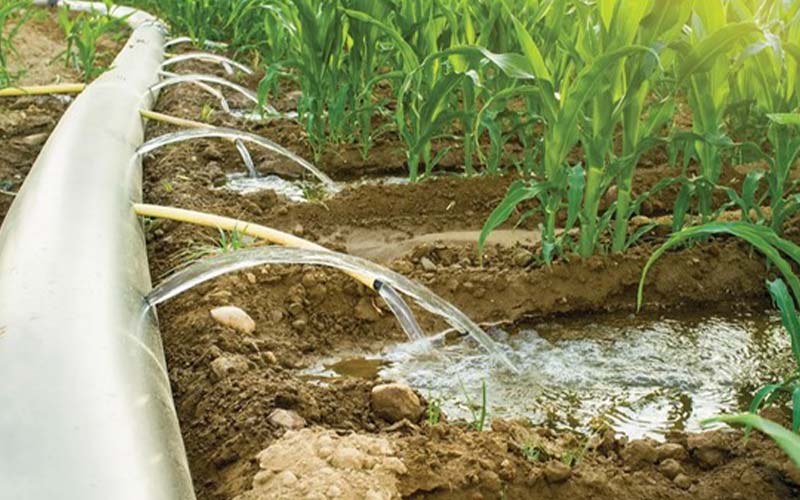Ghana Commercial Agriculture Project (GCAP) Investors Conference; Kpong Left Bank Irrigation Project (KLBIP)
Ghana is noted for the production of agricultural produce, for local consumption as well as export. The contribution of the agricultural sector amounts to about 20% of GDP and creates about 50% employment for the countries natives.
There have been several interventions made to increase yield and sustain the agricultural sector in Ghana, noticeable policies include; Planting for Food and Jobs Initiative, Investing for Food and Jobs (IFJ) which is geared towards the increase in the yield of crops and creating jobs; One village one Darn, Ghana Commercial Agriculture Project which is also centered on providing a more sustainable irrigation system in Ghana.
The Ghana Commercial Agriculture Project (GCAP) is a project of the Government of Ghana being implemented under the Ministry of Food and Agriculture (MOFA), with the objective “To improve agricultural productivity and production of both smallholder and nucleus farms in selected project intervention areas of the Recipient’s territory.”
Background
The Ghana Commercial Agriculture Project (GCAP) was approved by the World Bank and Ghana’s Parliament in 2012 and became effective in 2013. The Project is private sector focused and a demand driven project, financed initially by a loan of US$100 million from the World Bank and a grant of US$16.95 million from the United States Agency for International Development (USAID).
The project was restructured in November 2015 to include the reformation and strengthening of the Ghana Irrigation Development Authority (GIDA), the Irrigation Company of Upper Region (ICOUR), and the rehabilitation and modernization of four major irrigation schemes and six smaller scale schemes. The project was restructured for a second time in May 2018, receiving an additional financing of US$50 million, and an extension of the closing date to December 2020.
In 2015, the GCAP formally took over the restructured Kpong Left Bank Irrigation Project (KLIP) and awarding of contracts for its rehabilitation, modernization and extension, with the objective to effectively manage the rehabilitation of 1800 hectares gravity scheme through efficient operation, management and maintenance of irrigation facilities and the introduction of inclusive commercial agribusiness models. In addition, it will provide irrigation water to 1500 hectares of farm land outside the gravity command area through pumping, bringing the total irrigable land at KLBIP to 3,300 hectares. The Project is located on the left bank of the Volta River downstream of the Kpong Hydroelectric Dam at Akuse in the North Tongu District of the Volta Region.
Before the rehabilitation, the existing gravity system in the project area commanded a gross area of 450 hectares. It comprised of a lined supply canal off-taking from a gated irrigation outlet provided in the left-wing embankment of the Kpong Dam. It had two main canals, MC-1 with an existing length of 3369 meters with four secondary canals branching from it. MC-2 with a length of about 4430 meters with six secondary canals branching from it. However, the irrigation scheme was non-functional due to various challenges, which resulted only in parts of the command areas being cultivated by some farmers who pumped water from the main canals because the existing canals supply levels were lower than those required to command the 450 hectares project area by gravity flow. Clearly the intervention will bring massive improvement to the project as the modernization will include the installation of state-of-the-art instrumentation and automation for gates control, monitoring and measurement of flows. Also, under this system, farmers will be billed based on the volume of water they use to ensure efficient usage and management of the water resources. Government is however in the process of establishing an efficient Scheme Management Entity (SME) to effectively operate, maintain and manage the scheme together with relevant stakeholders such as MOFA, GIDA, and the Lands Commission.
To ensure sustainability of the scheme, private participation in the scheme management were engaged on the 23rd of July 2021 at the Aseda Hotel in the North Tongu District, Volta Region. This was geared towards contracting interested private investors to jointly manage the scheme with the Water Users Association (WUA) in accordance with the LI 2230 (2016).
The Program was graced by the Mankrado of Targorme, Togbe Gidi, Representatives from the World Bank, Minister and MOFA. The program was climaxed by noticeable addresses by the representative of the Minister, MOFA, who spoke extensively about the Government achievements and interventions in the agricultural sector especially with this project giving assurance that they have put everything in place to make the project successful. Dr. Sheu Salau, representative of the World Bank assured investors that this is a good project and the World Bank has thrown in its full support and the project financials by the project Coordinator of GCAP.
In his analyses on a 7mt/ha per season, one hectare produces an estimate gross income of GHC 14770, production cost of GHC 6294.50, ISC of GHC 1155.36, and this will yield a Gross Margin of GHC 7320.15. He further explained that the expected Net Present value in two seasons will be GHC 10,579,198 with the IRR being 38% and the Benefit Ratio being 1.85%. Finally, he noted that the Discount Rate will be 19.75% which includes the acquisition fee amortized for over 50 years.
Investors were informed that they can acquire portions of the available lands to produce crops through a commercial driven approach. The minimum size for rice and other cereals are pegged at 100 hectares while vegetables are pegged at 10 hectares. The program ended with a tour to the already constructed canals, how they function and some farms that have started the operations at the area.
This project is going to bring various value chain services as a result of increasing economic activity on the scheme. These support services include farm input services, mechanization support services, produce handling and processing, marketing and many more.


Comments are closed.